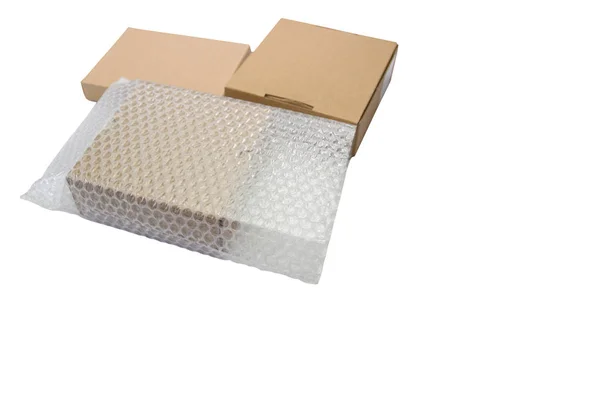Unlocking The Potential: Innovations In VCI Packaging Technology
In the realm of industrial packaging, ensuring the protection of sensitive equipment and machinery during transit and storage is paramount. Volatile Corrosion Inhibitor (VCI) packaging technology has emerged as a revolutionary solution to this challenge. By employing advanced chemistry, VCI packaging prevents corrosion by creating a protective layer around the metal surfaces it encases. In recent years, there has been a surge in innovations within VCI packaging, leading to enhanced effectiveness, sustainability, and versatility. This article delves into the cutting-edge developments in VCI packaging technology and their profound implications across industries.
Understanding VCI Packaging
VCI packaging operates on the principle of volatile corrosion inhibitors, which are chemicals that vaporize to form a protective layer on metal surfaces, thereby inhibiting corrosion. This mechanism distinguishes VCI packaging from traditional methods like oil coatings or desiccants, as it offers a non-contact solution that does not leave residue on the metal surface. The versatility of VCI packaging extends across various industries, including automotive, aerospace, electronics, and military, where protection against corrosion is critical for maintaining product integrity and longevity.
The Evolution of VCI Packaging Technology
Nano-Technology Integration
Recent advancements in nanotechnology have paved the way for the integration of nanoparticles into VCI formulations. These nanoparticles, such as graphene or nano-clay, possess remarkable barrier properties and surface reactivity, enhancing the effectiveness of VCI packaging. By leveraging nanotechnology, VCI packaging can provide superior corrosion protection even in harsh environments with extreme temperature and humidity variations.

Smart Packaging Solutions
The emergence of Internet of Things (IoT) technology has led to the development of smart VCI packaging solutions. These intelligent packages are equipped with sensors that monitor environmental conditions such as temperature, humidity, and corrosive gases in real-time. By collecting and analyzing data, smart VCI packaging can optimize corrosion protection strategies and provide early warnings of potential risks, thereby minimizing damage to enclosed metal components.
Biodegradable VCI Films
In response to growing environmental concerns, researchers have focused on developing biodegradable VCI films derived from renewable sources such as plant-based polymers. These eco-friendly alternatives offer the same level of corrosion protection as conventional VCI films while reducing the environmental impact associated with disposal. Biodegradable VCI films align with the sustainability goals of many industries, making them an attractive choice for environmentally conscious consumers.
Applications Across Industries
The versatility of VCI packaging technology has catalyzed its adoption across diverse industries, each with unique corrosion protection requirements.
Automotive Industry
In the automotive sector, VCI packaging plays a crucial role in safeguarding critical components such as engine parts, brake systems, and electrical connectors during transit and storage. By preventing corrosion-induced malfunctions, VCI packaging helps automotive manufacturers maintain product quality and reliability, ultimately enhancing customer satisfaction.
Aerospace and Defense Sector
For aerospace and defense applications, where precision-engineered metal components are subjected to extreme conditions, the reliability of VCI packaging is indispensable. By ensuring the integrity of sensitive equipment such as aircraft engines, avionics systems, and weapon platforms, VCI packaging contributes to operational readiness and mission success in military operations and civilian aviation alike.
Electronics and Semiconductor Industry
In the electronics and semiconductor industry, where even minor corrosion can compromise device performance and reliability, VCI packaging provides an effective solution for protecting sensitive components during shipping and storage. From microchips and circuit boards to sensors and connectors, VCI packaging preserves the functionality of electronic devices, mitigating the risk of costly damage and product recalls.
Exploring Advanced Applications of VCI Packaging Technology

Advanced Corrosion Protection in Harsh Environments
One of the most significant challenges in corrosion protection is safeguarding metal components in harsh environments characterized by high levels of humidity, temperature fluctuations, and exposure to corrosive gases. Conventional packaging methods often fall short in such conditions, leaving metal surfaces vulnerable to corrosion damage. However, advanced VCI packaging formulations are specifically engineered to address these challenges.
Multimetal Protection
Traditional VCI formulations may provide adequate protection for specific metal types, but they can be less effective when different metals are enclosed together. This is due to variations in the corrosion potential of different metals, leading to galvanic corrosion when they come into contact. Advanced VCI formulations are designed to offer multimetal protection, ensuring uniform corrosion inhibition across a wide range of metal alloys. By eliminating the need for separate packaging materials for each metal type, multimetal VCI packaging streamlines logistics and reduces packaging complexity.
Extended Protection Duration
Another area of innovation in VCI packaging technology is the extension of protection duration. While traditional VCI formulations typically offer corrosion protection for a limited period, advanced formulations leverage controlled release mechanisms to prolong the effectiveness of corrosion inhibition. This is particularly beneficial for long-term storage or overseas shipping, where extended protection duration is essential to prevent corrosion-related damage during transit and storage.
Best Practices: Programs in VCI Packaging Technology
- Innovative Coating Technologies: Research into advanced coating technologies such as plasma-enhanced chemical vapor deposition (PECVD) and atomic layer deposition (ALD) is enhancing the effectiveness and durability of VCI coatings applied to metal surfaces, offering superior corrosion protection in demanding environments.
- Customizable Packaging Solutions: Manufacturers are offering customizable VCI packaging solutions tailored to the size, shape, and specific requirements of individual metal components, optimizing protection and minimizing material waste.
- Compatibility with Other Packaging Materials: VCI packaging technology is being integrated with other packaging materials such as cardboard, foam, and plastic to create hybrid packaging solutions that combine physical cushioning with corrosion protection, ensuring comprehensive protection for sensitive equipment and machinery.
- Remote Monitoring and Control: IoT-enabled VCI packaging solutions equipped with remote monitoring and control capabilities allow users to track and manage corrosion protection parameters remotely, enabling proactive maintenance and intervention to prevent corrosion-related damage.
- Incorporation of Antimicrobial Agents: In addition to corrosion inhibitors, VCI packaging formulations may incorporate antimicrobial agents to inhibit the growth of bacteria, fungi, and other microorganisms on metal surfaces, reducing the risk of microbiologically influenced corrosion (MIC) and maintaining product hygiene.
6 Nicholas Drive Dandenong South, Vic 3175 Australia
Phone: 03 9768 2322

